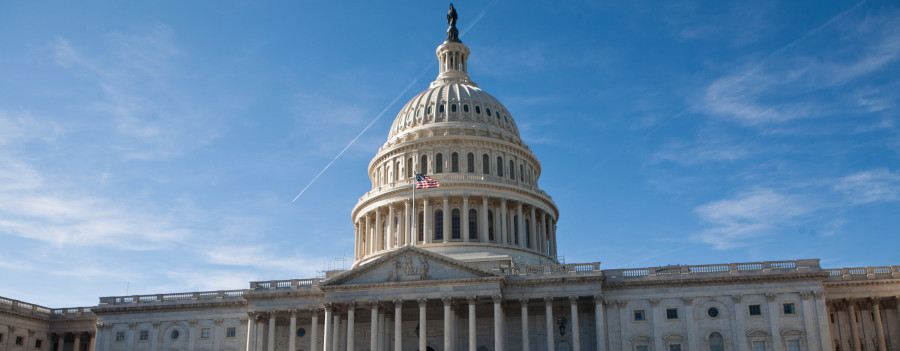 WASHINGTON — House Republicans banned earmarks, a top symbol of congressional profligacy, after they won control of the chamber last fall in a wave of voter anger over excessive government spending.
WASHINGTON — House Republicans banned earmarks, a top symbol of congressional profligacy, after they won control of the chamber last fall in a wave of voter anger over excessive government spending.But more than half of the amendments to this year's House Department of Defense authorization bill were earmarks, according to Democratic Sen. Claire McCaskill of Missouri, a leading congressional critic of the practice.
In a report to be released this week, McCaskill said that the House Armed Services Committee's chairman, Rep. Howard McKeon, R-Calif., set up a system that enabled members to "circumvent the earmark ban" by offering pre-approved amendments that outlined the projects and the funds they hoped to secure for their districts.
While the committee said the projects described in the amendments were competitive, unlike earmarks, the sponsors were often lawmakers who had requested similar earmarks in the past. Moreover, some of them touted the projects in the amendments as boons for their districts or states as soon as the House of Representatives passed the bill.
In addition, the report said, "These amendments were subsequently adopted in large groups with little or no debate" or public disclosure.
The money to offset the costs of the amendments came from a "special fund" McKeon created by taking money from other defense accounts, according to the report, but which was "not dedicated to any clear defense spending priorities."
A spokesman for the House Armed Services Committee could not be reached for comment Friday.
But McKeon disputed McCaskill's claims when she first raised them in a letter to him last spring, following the House passage of the defense bill. In his reply, he called her contentions "inaccurate" and said that the bill has been "highlighted as a model for government transparency."
McKeon said the defense authorization bill had been posted on the committee's website two days before the hearing in which the legislation would be put into final form. He also said the hearing was aired on CSPAN and the amendments were posted on the committee's website.
When the committee developed its amendment plan, "we were cautiously optimistic that this would be a decent process," said Steve Ellis of Taxpayers for Common Sense, a government spending oversight group that opposes earmarks. "As it played out, we moved from being cautiously optimistic to being cautiously pessimistic."
Earmarks are directed spending requests from lawmakers that benefit their districts or states and which receive little or no oversight. The more powerful and senior members are, the more earmarks they could get. Earmarks also were used to help shore up lawmakers in politically difficult districts.
Opposition to earmarks once was the cause of a just few congressional outliers who opposed the often-secretive process. But opposition has grown as congressional spending has come under greater scrutiny.
House and Senate Republicans, as well as the Democratic-run Senate Appropriations Committee, have banned earmarks' inclusion in legislation. President Barack Obama has said he would veto any bills that contained earmarks. Last week, McCaskill and Sen. Pat Toomey, R-Pa., called for a permanent ban.
Of the 225 amendments to the House defense authorization bill that McCaskill's staff reviewed, aides judged that 115 — totaling $834 million — were earmarks, based on several factors. These included how similar an amendment was to a previous earmark requested by the same lawmaker. To determine that, her staff reviewed the lawmaker's website and press releases, past defense bills and earmark databases maintained by government watchdog groups.
The report found that 75 of the alleged earmarks belonged to Democratic members of the House committee, who, unlike the Republicans, were not subject to a self-imposed ban. Republicans, meanwhile, contributed 40 of the alleged earmarks, including 20 from freshmen elected last fall.
McCaskill said in an interview that she found the number of freshman Republicans surprising because the 2010 election, she said, "was supposed to be about reckless spending, shutting down the favor factory and no business as usual in Washington."
The report cited several examples of lawmakers whose amendments it said closely resembled earmarks.
Among them was Rep. Vicky Hartzler, R-Mo., who submitted an amendment for the addition of $20 million for the Air Force to outfit bombers so they could carry a variety of munitions. Whiteman Air Force Base, where the B-2 bomber is based, is in her district.
"It's not something that was earmarked in any way, shape or form," said her spokesman, Steve Walsh. "The Air Force will decide, not Vicky Hartzler, whether that money goes to Whiteman or anywhere else."
Rep. Bobby Schilling, R-Ill., asked for $2.5 million in an amendment for weapons research and development, the report said. His predecessor, former Democratic Rep. Phil Hare, had made a similar request in fiscal 2010 along with Sen. Charles Grassley, R-Iowa, and Grassley made one again in fiscal 2011.
The report said that a veteran lawmaker, Rep. Kathy Castor, D-Fla., asked in an amendment for $2 million from Army research and development funds for "informatics tools to support clinical care and research." In the previous two years, the report said she had made similar requests, with the money to aid the University of South Florida's College of Medicine in her district. She issued a press release in May after the bill passed the committee.
Origin
Source: McClatchy dc
No comments:
Post a Comment